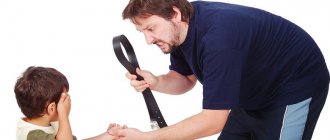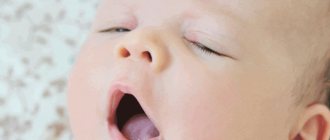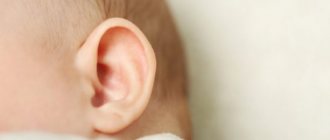In the human body there are large and small salivary glands, and it is thanks to them that salivation is regulated. If this rather complex process proceeds normally without deviations, they are capable of secreting up to 2.5 liters of saliva per day. Otherwise, certain disturbances in the functioning of vital systems may be accompanied by drooling - increased secretion of saliva, or in other words, hypersalivation. Also, excessive salivation in a child can be called ptyalism or sialorrhea.
Is your baby's hand in your mouth all the time, and is drool constantly flowing down your chin? The reasons for this can be very different
During the period up to 2 years, children are characterized by excessive functioning of the salivary glands. At this age, this is a physiological feature. The reason may well be cutting baby teeth, which also force the baby to suck his own fingers or even fists. When a child drools a lot, it often results in a rash in the mouth area, but it does not require treatment. You just need to wait this time out. Parents should be more attentive to the appearance of excessive drooling after the child is 2 years old, since various pathological reasons can cause it.
Drooling in babies and their causes
All newborns in the first month are distinguished by the fact that their salivary glands have a fairly low level of secretory activity. It is generally not common for a one-month-old baby to drool a lot with bubbles, but there are several factors that can cause excessive drooling:
- Immaturity of the system that regulates salivation. However, by one and a half months, drool released in large quantities will become normal, since it is by this age that the salivary glands begin to work more actively.
- Allergic rhinitis or infection that is bacterial or viral in nature. Similar causes are quite likely if there are no other symptoms (for example, the baby is getting its first teeth, and therefore he sucks his fists all the time).
- Birth defects. In this case, you should consult your pediatrician.
When a 2-month-old baby drools, this is most often due to the inability to swallow it - this physiological process occurs naturally only during feeding. During this period of time, the endocrine glands and salivary glands simultaneously begin to function in the baby’s body. As a result, a three-month-old baby may experience a constant flow of drool, but this is natural and over time he will learn to handle saliva correctly.
Increased salivation in babies can be caused by illnesses, such as rhinitis.
At 3-4 months, copious amounts of saliva may mark the beginning of the growth of baby teeth (we recommend reading: which teeth cut first?). This is also accompanied by restless behavior, the child endlessly sucks his fingers, and sometimes his entire fist. The formation of the first teeth begins deep in the gums. On their way up, they injure the gum tissue, which causes a lot of pain, which is why the child sucks his fist and always puts his fingers in his mouth. Saliva helps soften the gums, thereby reducing the pain experienced by the child.
After the teeth have already erupted, saliva performs important cleaning functions: due to its alkali content, it washes away food debris after feeding and foreign particles that have entered the mouth due to the fact that the baby sucks on its hands. Thus, they help prevent dental pathologies.
Drooling in a 2-month-old baby: why does a newborn drool profusely?
The long-awaited day came and the baby was born, whom his mother had so tenderly carried under her heart for 9 months. No one and nothing can burden the joy of motherhood.
Constant lack of sleep, the hassle of caring for a toddler, cooking, cleaning... All this is nothing compared to the sensations that young parents experience after every coo and smile of their baby. What a surprise parents are when their 2-3 month old baby begins to drool heavily.
The bibs have entered and everyone is waiting for the first tooth to appear. When do babies normally start drooling, and why does a two-month-old baby drool so much?
Why is my baby salivating?
There is an opinion that if a baby's mouth is drooling, it means that the first tooth will soon appear.
This opinion is not always shared by pediatricians, because pediatrics clearly states that the baby’s first tooth erupts at about 6 months from birth. Let's look at this issue in more depth.
An interesting fact is that the salivary glands have the ability to produce saliva even at the stage of intrauterine development of the fetus. Let's find out why a child drools at such an early age?
When is excessive salivation normal?
Parents should not be surprised if their beloved baby drools a lot. This is a normal physiological process intended by nature itself.
Parents should be alerted to the side symptoms that accompany their increased secretion in toddlers.
Therefore, you should know when such a physiological process should cause an alarming reaction, and when this is the norm and does not require any medical intervention.
Newborn
An increase in salivation can be observed in the first months after birth. In newborn children, this process is nothing more than a protective function.
It is the secretion of saliva that can prevent infection from entering the oral cavity in the first weeks after birth.
In addition, saliva performs another important function in newborns, especially from 2 to 5 months. Thanks to special enzymes that are part of saliva, starch is broken down into sugar. This allows the gastrointestinal tract to adapt favorably to a new environment, promotes the proper digestion process, and normalizes intestinal function.
At 1 month
The swallowing reflex in a newborn is not yet fully developed, but the active work of the salivary glands stimulates the production of saliva. At 1 month old, the baby has not yet learned to swallow, although the young mother notices his swallowing reflex when breastfeeding.
Not understanding what he should do with the saliva in his mouth if he is already full, the logical action for him would be to release the saliva outward - and it seems to his parents that it is flowing in a stream down his chin. Mom and dad must ensure that the baby does not choke on saliva while lying on his back - it is best to place him on his side. Also make sure that the baby's chin remains dry, if possible.
At 2 months
At 2 months of age, salivation does not decrease, but increases even more? It is worth examining the baby's oral cavity. Often, excessive salivation may indicate an inflammatory process in the mouth, for example, stomatitis.
A child of 2 months requires special attention if drooling bubbles (we recommend reading: can teeth begin to erupt at 2 months?).
If the tongue is covered with a white coating, then you should inform your pediatrician, who will recommend an effective remedy for candidiasis.
At 3 months
Why does a three-month-old baby drool so much, and he literally lets it out in a stream? At 2-3 months, children already begin to explore the world around them. Their attention is attracted by nearby toys, which they strive to put into their mouths. The thought creeps in that this is it—teeth should definitely be cutting through now. Don't rush - everything has its turn.
In the third month of life, the amount of gland secretions should normally visually decrease. The child has already learned to hold his head up, so some of the secretions from the salivary glands may already flow into the stomach. Moreover, closer to 4 months, the swallowing reflex begins to automate. There is no need to worry - drooling is considered normal if the baby:
- calm,
- funny,
- active,
- playful,
- does not refuse food.
Symptoms that require consultation with a pediatrician
A healthy child with parents and its proper development is a great happiness.
Strong salivation, if it is not accompanied by other symptoms of abnormalities, requires only a timely change of clothes and bibs.
Unfortunately, sometimes an immediate consultation with a local pediatrician is necessary. We list the symptoms in a baby that should alert parents and require immediate consultation with a pediatrician:
- The drooling continues and is accompanied by difficulty breathing through the nose and increased body temperature. It is possible that the baby caught the virus - its etiology needs to be determined.
- The child's eyes turned red, his nose was stuffy, he began to cough and sneeze frequently. These symptoms may indicate an allergic reaction. At two to three months and up to a year, the development of allergies in a baby can be triggered by pollen from flowering indoor plants, dust, detergents, baby hygiene products and pets.
- Thickening of the tongue and its constant falling out of the mouth with excessive salivation. This may indicate a dysfunction of the endocrine system.
- Thick, cloudy saliva may indicate the presence of helminths. The pediatrician will prescribe appropriate tests, the results of which will help refute or confirm suspicions.
- If by 3 months the baby cannot hold his head up, his fontanelle is pulsating, he does not get enough sleep and constantly cries, then he should be shown to a neurologist. Developmental pathologies cannot be excluded.
- Does your baby have excessive salivation accompanied by a runny nose and sneezing? Immediately call a pediatrician at home - these are symptoms of ARVI.
The child cannot yet independently tell where it hurts. You should carefully monitor the baby’s behavior and, at the slightest suspicion of a deviation from the norm, immediately inform your pediatrician.
Viscous and thick saliva may indicate the presence of helminths. If you notice a discharge of dubious consistency and color in your toddler, he constantly bites his fists and sleeps poorly, it is better to show the baby to specialists. Carefully observe the baby’s behavior and at the slightest suspicion of deviations, immediately inform the pediatrician.
How to help your baby?
Parents are always responsible for their baby, especially in childhood. The slightest change in his behavior should attract their attention.
In most cases, excessive salivation in the first year of a baby’s life is normal.
Imagine how a toddler feels with a constantly wet chin? The parents' task is to alleviate his condition and support him at every moment.
- Bibs at this age are a necessary element of the wardrobe. It will not only prevent your little one’s clothes from getting wet. This is a good method to teach a toddler to be neat from the first months of his life. Soon the baby will learn to control the spoon independently - this will protect the child’s clothes from many unsightly stains.
- Don't forget about nourishing and moisturizing baby creams. Constant contact of saliva with the skin of the chin can cause irritation, which will be accompanied by itching and redness of the skin. Creams containing zinc are excellent for drying the skin. True, it should only be used if the baby is drooling and there is actually redness on the skin of the chin that bothers him.
- No matter how bad pediatricians speak about pacifiers, we must give them their due - they really help calm the flow of saliva. It is sucking a pacifier that helps a child learn to swallow saliva.
Be patient - after a few months, the salivary glands themselves will learn to stimulate the secretion of saliva in a dosed manner, and then all the problems will be behind you. You still have a period of teething in the baby, during which everyone is still drooling like a river and bubbles, but as a reward, the first teeth appear (more details in the article: at what months do the first teeth begin to cut?).
Loading…
Source: https://spacream.ru/stomatologiya/pochemu-u-2-3-mesyachnogo-grudnichka-tekut-slyuni-i-kogda-nachinaetsya-obilnoe-slyunootdelenie-u-rebenka
Helping your baby with excessive salivation
A continuous stream of drool in an infant causes discomfort to both the baby and the parents. The result of excessive drooling can be not only constantly wet clothes and a bad mood, but also irritation in the chin and chest area. A rash like this, which appears as a result of endlessly flowing drool, causes far from pleasant sensations and additional inconvenience. Plus, a large volume of saliva secreted can provoke a cough in the baby.
Using teethers and special gels for gums will relieve itching in the mouth and soothe the baby.
It is possible to minimize all the ensuing consequences through proper care, which includes:
- Using bibs. They have been used for a very long time and, due to the presence of a liner made of waterproof materials, they perfectly protect the baby’s chest from constant exposure to moisture. It wouldn’t hurt to include them in the list of things that need to be purchased before the baby is born.
- Buying a pacifier. In the modern world, many mothers are trying to give up pacifiers. However, it can be very useful, because it makes it much easier for the baby to swallow drool.
- Purchasing teethers. Such inventions are aimed at reducing itching of the gums. At the same time, they perfectly absorb excess saliva. It is important to regularly put them in the wash and rinse them thoroughly.
- Using face creams containing vitamins A and E. Lubricating irritated areas with them will reduce discomfort.
- Placing the baby on his tummy. Since newborn babies lie on their backs almost all the time, drool accumulates, as it is difficult for it to flow out of the mouth. Placing the baby on your stomach is an excellent solution to this problem.
- Use of cooling and anesthetic gels. They will relieve itching in the gums, which in turn will lead to a decrease in irritation, and therefore a decrease in saliva production.
Despite all the inconveniences associated with excessive salivation, in most cases it is completely normal. All children go through this, and parents just need to be patient and, if possible, alleviate the condition of the baby.
If you are still concerned about your baby's continuous drooling, which is accompanied by other unpleasant symptoms, consult your pediatrician
Excessive salivation as a symptom of disease
The table below lists the possible reasons why a child at the appropriate age may drool profusely in addition to other symptoms. It also describes the measures that can be taken to somehow alleviate his condition:
| What worries the child? | Probable Causes | Your actions |
| In the first six months of life, the baby became irritable, constantly strives to gnaw or chew something, and puts any objects in his mouth. | The process of teething | A pacifier, special rubber rings, or just a cold object can help calm your baby. |
| The baby has a headache, a sore throat, a stuffy nose, snot flowing, he is sneezing, coughing, he has a fever, and the lymph nodes in his neck may be enlarged. | ARVI or sore throat, sometimes streptococcal | Call a doctor and reduce the temperature with paracetamol in the required dose |
| Painful ulcers or white spots appear on the oral mucosa | Stomatitis | Examination by a pediatrician and prescribing appropriate treatment. At home, you can rinse your mouth with a baking soda solution. |
| In a sitting position, the baby takes deep breaths with an open mouth with noise, while his chin is lowered. A high temperature rises and the child complains of a severe sore throat | Epiglottitis is swelling of the epiglottis. This is a formation that covers the windpipe | This disease affects only children over three years of age. It is necessary to calm the baby and yourself so as not to aggravate the already difficult breathing and call an ambulance |
| Sudden fall with twitching of limbs | Convulsions | Immediately call an ambulance |
Other possible causes of excessive drooling in a child who is already two years old may include:
- a disease that disrupts the functioning of the salivary glands, for example viral sialadenitis;
- helminthic infestation;
- diseases of the gastrointestinal tract, including pancreatitis and peptic ulcer;
- all kinds of deviations in the functioning of the central nervous system;
- nervous stress.
In children over two years of age, drool may indicate the presence of a disease, for example, gastrointestinal problems
Based on functional studies of the sublingual and parotid salivary glands, which are carried out today, only increased salivation can be diagnosed. In the absence of pathologies, the amount of saliva secreted, which ranges from 1 to 4 ml within 20 minutes, is considered within normal limits. If the level exceeds 10 milliliters, it is considered that a person has a pathology such as hypersalivation. Its false form can manifest itself, for example, as a result of a tongue injury or bulbar palsy.
In any case, whatever the root cause of hypersalivation, it is necessary to treat the underlying disease. Elimination of the main problem will entail an independent cessation of drooling.
How to get rid of increased salivation?
First of all, it is necessary to find the causes of this deviation and begin to fight it.
If a child is teething, no additional measures (other than those described above) should be taken. But if the reasons are more serious and consist, for example, in problems with the oral mucosa, then measures must be taken immediately. Currently, there are many medications for stomatitis and gingivitis, but before using pharmaceutical drugs, you should consult your doctor.
You can alleviate the child’s condition with the help of traditional medicine. Rinsing your mouth with salt water helps with stomatitis. And for gingivitis, it is recommended to use sea buckthorn oil.
In general, to prevent any diseases accompanied by excessive salivation, it is necessary to strengthen the child’s immunity. The best ways to do this are to eat a healthy diet, get good sleep, avoid stress and worry, and take regular walks in the fresh air.
Hypersalivation
If we consider salivation from a physiological point of view, then in this process the mutual work of receptors in the periphery and the brain is assumed. The idea is that when saliva accumulates in the mouth, a command is transmitted along the motor pathways to the brain to swallow it. If the functioning of the reflex sensorimotor arc is disrupted, as a result of a distortion of sensitivity, or in other words, with hypoesthesia, the flow of information from the oral cavity does not reach the brain. This leads to the fact that the number of involuntary swallows decreases during the day, which means that the amount of saliva increases.
In order to restore reflex swallowing, it is necessary to correct the sensorimotor arc. In order to overcome this problem, you need to try to create conditions under which the brain will begin to receive sufficient information again.
Only a doctor can choose a method of treatment for complicated salivation; the main thing is not to leave everything to chance, the disease will not go away on its own
Cryotherapy is considered the most effective way to combat hypersalivation. The essence comes down to running an ice stick over the baby’s tongue. Naturally, this approach does not provide one hundred percent guarantees, but if drooling does not stop completely, then at least it is significantly reduced. Cryotherapy does not work instantly, but requires endurance and perseverance, but it is less painful than surgery and dental correction.
Causes of increased drooling in a child
In medical practice, certain provoking factors for the development of hypersalivation in children of different ages are identified.
Among them, the most common reasons why salivation is increased are:
| Name | Description and age | Additional symptoms |
| Teething | A natural physiological process between the ages of six months and 4 years. Gradual increase in the amount of saliva production. It is characterized by the constant release of transparent saliva of a liquid consistency from the oral cavity. | Hyperthermia of the whole body, increased tearfulness, nervousness, sleep disturbance, constant anxiety and rapid fatigue. The gums are inflamed and red, itchy and painful. |
| Oral diseases | A pathological condition associated with the development of inflammation in the oral cavity at any age in children. The most common diseases include stomatitis and gingivitis. Accompanied by a large amount of saliva with white opaque inclusions. It is also possible that there is blood in the saliva. | With stomatitis, ulcers are observed on the oral mucosa, which at an advanced stage can bleed. Also, the surface of the tongue becomes covered with a whitish coating and severe pain appears. With gingivitis, inflammatory processes are observed in the gum tissue, accompanied by local hyperthermia, swelling and discoloration. |
| Gastrointestinal diseases | They can develop in a child at any age. The most commonly diagnosed pathologies in this case include: pancreatitis, peptic ulcer, enteritis, hepatitis, gastritis. | Large salivation is accompanied by the following symptoms: diarrhea, nausea, vomiting, pain in the abdominal cavity, heartburn, constipation. |
| Nervous system diseases | Abnormal development of the brain and its congenital injuries. Certain forms of cerebral palsy. Also with systematic severe stress or high psycho-emotional overexcitation. These conditions can develop at any age. Therefore, salivation increases regardless of age category. | Increased nervousness and tearfulness of the child. Inconsistency of development with the age of the baby and his lack of correct reactions to a certain stimulus. |
| Fungal infections | Damage to the oral mucosa by pathogenic microorganisms and its inflammation is accompanied by increased hypersalivation. The secreted saliva most often contains white flakes, which are formed during candidiasis and other fungal infections. The risk group includes children of any age category. | The presence of a white coating on the surface of the tongue, lack of appetite, pain when swallowing and chewing food. Constant or periodic feeling of burning and itching in the mouth. Important! There are many factors that provoke increased salivation in children. Among them it is also worth highlighting a number of neurological pathologies, diseases of the eyes and ears, as well as diphtheria. |
Reasons to see a doctor
If up to two years of age, increased drooling in children is a physiological norm, then after this age, this problem requires the help of specialists. The consultation will clarify whether such a situation is temporary and normal from a physiological point of view, or, on the contrary, pathological, and cannot be avoided without drug intervention.
In case of true hypersalivation, drugs that have an anticholinergic effect are prescribed. These include:
- Spasmolitin;
- Atropine;
- Tifen;
- Diprofen and others.
Taking such medications has a number of side effects that can be an order of magnitude more serious than excessive salivation. Surgery and radiation are also dangerous for abnormalities such as caries or facial asymmetry. Any decisions regarding the treatment of a problem should be made carefully, choosing methods based on their feasibility and individual characteristics.
Excessive salivation can cause dysarthria in an older child - a problem with pronunciation. Speech becomes slurred and unintelligible. This in turn slows down the pace of development, which negatively affects his socialization. In such cases, qualified speech therapy massage may be needed. During this period, the baby should drink more water in order to restore fluid loss in the body. Whatever causes the drooling problem, it is important not to leave it to chance.
After two months, you may notice a lot of drool in your baby. In the future, salivation only increases, which causes discomfort to the baby. As a result, clothes and bedding become wet, and irritation and inflammation on the chin begin. In addition, drool ends up not only on the chin, but also on the cheeks and chest.
Therefore, irritation, dryness and inflammation may also occur in such places. Let's figure out why the baby is drooling. We will find out what to do if the baby drools in bubbles or drools very heavily, how to help the child and make the baby’s life more comfortable.
Causes of increased salivation
Teething is the main reason for this phenomenon. The first teeth begin to erupt after three or four months, and in some babies even after two months. The teeth move in the gums and cause severe discomfort, but saliva softens this irritation and even relieves inflammation.
At this time, it is important to let your baby chew on special teething toys. Cooling gel teethers, which are placed in the refrigerator for a while before use, help a lot. Cold products will soothe the gums, relieve inflammation and itching, and reduce salivation.
In the first year of a baby's life, the salivary glands are still developing, so the newborn may suffer from increased or excessive salivation. A large volume of drool is produced, and the infant simply cannot cope with swallowing. This is a temporary phenomenon that does not occur often and goes away with age.
More often you will see thick and viscous drool in a baby, which helps the baby to suck. Due to salivation, it is comfortable and easy for the baby to suck on the mother’s breast and obtain breast milk. In addition, excessive drooling occurs when the baby constantly sucks his fingers, bites or gnaws his fist, or puts objects and toys in his mouth. Read here what to do if your baby sucks his finger.
Saliva contains enzymes, antibacterial and antiviral substances. Therefore, it is important for protecting the baby from various diseases, including stomatitis. The child’s immunity is just developing, in addition, the baby loves to drag various dirty objects into his mouth. This increases the risk of infections, while saliva, in turn, performs a protective function and disinfects the baby’s mouth, skin and body. Thus, the oral cavity is washed and cleansed of harmful bacteria and germs.
In each of the listed cases, the baby’s profuse production and drooling gradually decreases and goes away after a year. However, there is a pathological disease that must be treated. In this case, increased salivation is called hypersalivation. It is the primary sign of any pathological disease. In case of hypersalivation, you should urgently consult a doctor to establish an accurate diagnosis.
How to help a baby
To reduce skin irritation and skin inflammation and make your child's life more comfortable, a number of preventive measures can be taken if there is increased drooling, which include the following:
- Wipe your saliva with hypoallergenic sterile soft wipes with a natural composition and without fragrances. Throw away the tissue after each use;
- Lightly blot rather than rub the skin on your chin. Friction will only make the irritation worse;
- Follow the rules of hygiene for babies. Wipe the skin of your chin and chest several times with a soft sponge or towel moistened with warm boiled water;
- To soften and moisturize the skin, use a special baby cream, milk or lotion. Carefully check the composition and expiration date of the product. It is important that the cream has a natural, safe composition and is appropriate for the child’s age. Choose products containing vitamins A and E. They effectively soften the skin, restore and protect the skin;
- To protect your clothing, hang a special fabric bib or collar with a waterproof lining. They absorb moisture perfectly. Do not tighten the bib too tightly around your neck!;
- To protect the bedding in the crib, place a folded diaper under your baby's head. This diaper will quickly absorb excess saliva;
- Place the baby on his tummy. This procedure has a positive effect on the development of the child, prevents skull deformation and the formation of an umbilical hernia, improves digestion and reduces salivation. In addition, it will help drain the saliva that usually accumulates in the mouth when lying down. You can place a newborn on his stomach already in the first week of life;
- Regularly change your bib, diaper or clothing as soon as it gets very wet with clean, dry items. Wash bedding and underwear, baby clothes separately from adults, and only with safe hypoallergenic products. Since such products are close to the baby’s skin and can easily provoke allergies, aggravate skin irritation on the chin, cheeks or chest;
- Watch your baby's teeth, give special teethers to reduce pain and inflammation. You can also lightly massage your gums with your finger using gentle circular movements. Remember that your finger must be clean!;
- Use pacifiers periodically as they help your baby swallow saliva. But don't give the pacifier too often, otherwise it will be difficult to wean your baby off it.
As we mentioned earlier, excessive drooling may occur if your baby is sucking, chewing, or biting a fist or finger, which may indicate that your baby is hungry or thirsty. In addition, this process can also be caused by teething. Do not try to wean your baby off sucking, as this is an innate reflex that will go away on its own over time.
Strict prohibitions or screaming because the baby sucks a finger or fist can negatively affect the mental development and nervous state of the baby. Under no circumstances should you smear your hands with mustard, garlic, salt or other similar products! They can cause allergies and poisoning in a child, burn the mouth and esophagus. Show and pay more attention to your baby. Distract your baby from the bad habit with games, activities, exercises and gymnastics. Try to find out and eliminate the reason for this behavior.
When to see a doctor
Unfortunately, sometimes a child may experience hypersalivation. If you notice excessive salivation or drool bubbles in your baby, contact your pediatrician! This may be a symptom of diseases such as stomatitis or candidiasis, diseases of the middle ear or nervous system, pathologies of the upper respiratory tract, hypersensitivity and allergies, diseases of the digestive system and endocrine system, severe poisoning or gingivitis, severe stress and nervous tension in a child.
With stomatitis, you may notice accompanying symptoms such as white spots and ulcers on the mucous membrane in and near the mouth. Each disease causes severe discomfort in infants. He will sleep poorly and cry often, be capricious, and eat poorly. Stool and digestive function may be disrupted, the temperature may rise and swelling may occur. The examination will help identify the problem and eliminate the disease at an early stage.
The deviations listed above are rare. Basically, the increased secretion goes away as soon as the work of the salivary glands normalizes, the baby stops putting fingers, a fist or other objects in his mouth, or when most of the teeth erupt. As a rule, the volume of saliva decreases by the age of one year. However, some children may suffer from this problem until they are two or three years old. In this case, be sure to go to a neurologist.
If a child has a runny nose, it often causes increased salivation. The combination of excessive salivation and runny nose indicates a cold, ARVI, sore throat, or allergies. In this case, be sure to consult a doctor so that he can make a diagnosis and prescribe the correct appropriate treatment.
Be careful, because with a runny nose, the baby cannot breathe fully, and due to the accumulation of saliva, breathing through the mouth will be difficult. As a result, the child will not be able to breathe normally. How to treat a runny nose in a baby, read the link
After the birth of the baby and as he grows up, every day something new can be observed in his development. Symptoms that are alarming for the mother, for example, increased salivation after the second month of life, cannot be ignored. The baby drools, which at first does not cause any discomfort to the baby, then, after a few days, the saliva secretion becomes more abundant, and the mother has to change the baby’s clothes more often. If the child’s chin is constantly under the influence of saliva, then it will become irritated, inflamed, and then the baby begins to show anxiety, because the irritation and rash cause him pain. Why a baby drools and how this phenomenon is characterized will be discussed later in the article.
1. Teeth coming soon!
The main reason for increased saliva production in babies is the preparation of the gums for teething. This period can begin at 2 months and continue throughout the first year and a half of the baby’s life. The teeth can move in the gum itself and cause pain to the baby. And saliva softens sore gums and has an anti-inflammatory effect, as nature intended. In this case, you are unlikely to cope with drooling, but you can help the teeth appear by buying your baby chewing toys and special teethers, for example, filled with water. You can cool them in the refrigerator and give them to your child to scratch their gums. The painful sensations will be much less intense.
2. Intensive work of the salivary glands.
The salivary glands are not yet fully formed, and during the first year of life they may from time to time “check” their work. There is too much saliva, the baby is not able to swallow it all, and it flows out. Fortunately, such periods are short-lived and quite rare, but nevertheless they do occur.
3. Fight bacteria.
Already from the age of three months, the baby drags rattles into his mouth. And the older you get, the more you want to try it by heart. Any dirty object can cause an unpleasant disease in a child - stomatitis. The body wants to get rid of the infectious agent with all its might, and since saliva has bactericidal properties, the oral cavity is literally washed with saliva from germs. Hence the complaints from parents about increased salivation in babies.
4. Hypersalivation.
I would like you to never come across this term in everyday life. In this case, increased salivation may be a sign of a more serious condition. Parents should monitor every change in the child’s behavior and health. It is necessary to consult with a specialist to rule out diseases of the brain, unequal system, and the presence of tumors.
Hypersalivation is one of the signs of the disease, usually the primary one, because incoordination of movements in infancy is quite difficult to determine, because the baby is still just learning everything. The neurologist and pediatrician will see the picture of what is happening more clearly, so do not make hasty conclusions, but be alert.
What to do and how to help a child with increased salivation?
The fact that a baby is drooling in most cases indicates teething. It is useless to fight this; you cannot influence this process. But it is quite possible for you to make life more comfortable for yourself and your child:
- To prevent clothes from becoming saturated with saliva, wear special collars with a waterproof lining on your child;
- on the street, try to give your child a pacifier, it will help the baby swallow saliva;
- The baby’s gums are itchy, so you can massage them with a clean index finger, gently pressing on the expected areas of eruption;
- The gum gel will cool the inflamed areas, relieve redness, and in a couple of seconds the child will feel calm and pain-free.
Remember that excessive salivation in a child is a temporary phenomenon; with the eruption of the first main teeth, it will be much easier for the child and saliva will no longer be secreted in such large quantities. Wait out this period, and to avoid making false diagnoses, contact a specialist - your local pediatrician. Have an easy teething, stay healthy!
Drooling in a 2-month-old baby: why do newborns and infants have increased salivation?
A baby drooling bubbles seems cute. Increased salivation is observed in infants at 2–3 months, and by one year the amount of salivary fluid decreases. Often, with hypersalivation, drool flows down the chin, which causes significant inconvenience for both parents and the baby himself. In what cases is increased salivation normal, and in what cases is it a pathological process?
Why is saliva needed?
Saliva is a biological fluid that is produced by the salivary glands and secreted into the oral cavity. The main glands that produce it:
- submandibular;
- parotid;
- sublingual;
- many small glands in the mouth.
Why is saliva needed? When it becomes low, a person experiences discomfort, dry mouth, and feels thirsty. It helps chew food and swallow. Main functions of saliva:
- moistens the mucous surface of the oral cavity;
- helps with the pronunciation of sounds;
- provides the perception of taste by dissolving a piece of food and helping the taste buds perceive its molecules;
- glues chewed food into one lump, helping to swallow it;
- cleanses the oral cavity of food debris;
- has a bactericidal and disinfecting effect;
- protects gums and teeth from diseases.
This wide range of effects is explained by the composition of saliva. It consists of 98% water, the remaining 2% consists of the following substances:
- Mucin is a high molecular weight glycoprotein that contains acidic polysaccharides. Mucin is produced by epithelial cells and is part of the secretions of many animals. Its main task is to wet and glue the food bolus.
- Lysozyme is an antibacterial agent that destroys the cell walls of microbes. In addition to saliva, it is found in tears, breast milk, and nasopharyngeal mucus. Thanks to lysozyme, many pathogenic microorganisms are neutralized in the mouth, and saliva has a disinfecting effect. It protects tooth enamel from destruction by bacteria.
- Enzymes amylase and maltase. These enzymes already break down carbohydrates in the mouth into oligo- and monosaccharides.
In addition, saliva also contains other enzymes, as well as acid salts and trace elements. The composition of this biological fluid can vary depending on a person's diet, his state of health and the irritant entering the oral cavity.
What should saliva be like normally?
In a healthy person, saliva appears clear or slightly cloudy and colorless, practically odorless. It is a little viscous; if you rub a drop between your fingers, you will feel it slipping. The viscosity is only slightly greater than that of water. The density of saliva varies depending on its composition and ranges from 1.002–1.12 g/ml.
One of the most important characteristics of saliva is acidity. Normally, it should be above 7 pH, that is, saliva is an alkaline environment. As acidity increases, salivary fluid loses its bactericidal properties. An acidic environment is perfect for the proliferation of pathogens.
The buffering capacity of saliva is a concept that characterizes the ability of salivary fluid to neutralize harmful substances that enter the oral cavity. The higher the acidity, the lower the buffer capacity. Acidity increases with prolonged consumption of carbohydrates. That is why parents forbid their children to eat a lot of sweets so that they do not have caries.
Why does my baby drool profusely?
Newborn babies begin to drool immediately after birth, and salivation only increases until they are three months old.
It’s not for nothing that bibs are hung on babies’ chests so that they don’t get their clothes wet.
Sometimes this feature of babies seems cute, but every mother has at least once asked the following question: is it normal for drooling so much, or is it due to illness?
Physiological causes of increased salivation
Saliva is produced immediately when a baby is born, but at 2–3 months the baby bubbles the most profusely. This is a normal process, it is necessary for the full development of the child. Reasons why newborns experience increased salivation:
- Unformed swallowing reflex. Despite the fact that the baby has already been born, many body functions are just beginning to develop. Swallowing is difficult in two-month-old babies, which is why excess saliva forms in the mouth, because it helps food slip inside into the esophagus. At two or three months, the baby also has not yet learned to swallow drool; there is too much of it, and the process happens constantly, so he blows bubbles and streams of salivary fluid flow down his chin.
- Protective barrier. After birth, the baby finds himself in a new, unknown world. He wants to know everything, try everything, and one of the ways to learn is to put an object in his mouth. The child puts toys, a blanket, and his own fingers and toes into his mouth. The immune system is not yet fully formed, so it will not be able to fight back all microorganisms that enter the body through the mouth. To protect your baby, you need as much saliva as possible, which can neutralize bacteria from a dirty toy.
- Teething. The first teeth begin to appear at 3–4 months. This process is accompanied by pain, itching in the gums, the baby’s temperature rises, he becomes lethargic and moody. Saliva has a disinfecting and calming effect. Profuse salivation helps the baby cope with such a painful process.
The peak of intense salivary fluid secretion occurs at 3–5 months. By six months, the swallowing reflex is almost formed. At what age does drooling stop flowing? By the age of 1 year, saliva production is normalized, the baby can already control swallowing, and liquid does not flow down the chin.
Pathological causes
Causes of pathological salivation in a 2-3 month old baby:
- Stomatitis is an inflammatory disease of the oral cavity, characterized by the formation of ulcers and aphthae on the mucous membrane. With the help of saliva, the body tries to neutralize the infection; it is released as a reaction to infection. Also, the amount of salivary fluid increases due to the pain experienced by the baby
- Candidiasis is a fungal infection caused by fungi of the genus Candida. A common occurrence in newborns who become infected with thrush from the mother during the birth canal or from dirty nipples and bottles. It manifests itself in the appearance of a white cheesy coating on the tongue, under which bleeding ulcers are hidden. Saliva from thrush is thick, cloudy, and smells unpleasant.
- Cerebral palsy and other disorders of the central nervous system. The child experiences partial muscle paralysis, convulsions, and impaired coordination of muscle movements. Such disorders prevent children from retaining saliva in their mouths.
- Colds, ARVI, respiratory diseases (bronchitis, pneumonia, sore throat). With these ailments, in addition to hypersalivation, the child develops a cough, runny nose, and fever.
- Diseases of the digestive system. Pathologies in the functioning of the stomach and intestines can provoke increased salivation. The saliva will smell unpleasant and have a thicker consistency.
Changes in the amount and composition of saliva can occur due to stressful situations and nervous tension. Only a doctor can find out the reason that caused hypersalivation. First of all, it is necessary to take the baby to a pediatrician, and he will refer you to other specialists, if necessary: an endocrinologist, neurologist, dentist or gastroenterologist.
How to alleviate the child's condition?
A 3-month-old child is drooling – what should I do? If your baby has a constantly wet mouth and chin, irritation will develop in this area over time. The skin begins to peel off, and weeping ulcers appear in this area. Some tips on how to help your baby:
- Try to immediately wipe away saliva when it flows, avoiding getting it on your skin. For this, it is best to use hypoallergenic baby wipes. The mouth and chin should be gently blotted and not rubbed.
- To protect clothing, hang a bib on your baby's chest. However, you should not leave it overnight so that the child does not get entangled in the strings and suffocate. The fabric needs to be changed when it gets wet.
- Place the baby on his tummy. This will help the saliva flow directly onto the crib lining rather than pooling in your mouth. You can put it on your stomach already in the first month of life.
- When teething, give your baby special teethers that he will chew on. A light massage helps relieve pain and tooth loss. Mom should wash her hands thoroughly, and then run her finger along the gums with gentle massaging movements.
- The pacifier helps to swallow saliva. The child makes sucking movements, which contribute to the swallowing reflex. Often the baby replaces the pacifier with his own finger or bites his fists.
If your baby experiences discomfort from excessive salivation, you should visit a doctor. Both a strong secretion of saliva and a lack of it should alert you. Only a doctor will be able to determine whether hypersalivation is a physiological norm for a particular newborn or is it a consequence of a disease.
Source: https://AzbukaZubov.com/rebenok/polost-rta/slyuni-u-novorozhdennogo.html










